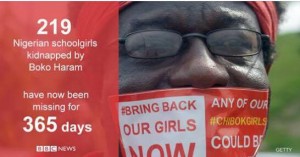I posted this on HuffingtonPost yesterday.
Yesterday’s horrific news came from Pakistan. Taliban militants stormed a school in Peshawar, killing at least 145. Children were gunned down in their classrooms, or as they attempted to flee. Teachers and other staff members were murdered in cold blood.
Several months ago we watched in horror as Boko Haram kidnapped hundreds of girls from a school in Nigeria. As a worldwide campaign demanded to “bring our girls home,” the terrorists expanded the diabolical domain of their cruelties. Most of the girls are still far, far from home.
This week we observe the anniversary of the shootings in Newtown Connecticut that killed 27. The revulsion at the time energized some to demand stronger gun control laws, at least universal background checks. And efforts were made to improve mental health services. Most of the work failed to result in legislation as outrage faded to apathy (and worse) among politicians.
Since Newtown there have been somewhere between 75 and 100 shootings at American schools. Many of these were acts of violence not directed at the schools or students per se, but CNN still concluded that 15 of the incidents were similar to Newtown or Oregon — a minor or adult actively shooting inside or near a school. One school shooting every five weeks. CNN breaks down the kinds of shootings here.
Of course, there are shootings at plenty of other locations, and the motivations of the Taliban attacking a military school are very different than those of a mentally ill young man who attacks an elementary school.
But the fact that these murders occur at schools increases their visibility, and intensifies our own revulsion at the destruction of innocent lives.
Why are schools and universities the scenes of such violence? Is it because schools, with all their problems, remain for us places of hope and optimism? Places of education are spaces for people who still believe in possibilities for positive change. We send our children to school because we hope that they will learn about themselves and the world in ways that will enable them to thrive – not just to navigate more effectively but also to flourish.
We look to colleges and universities to empower students to support themselves, to be sure, but also to make meaningful contributions to their communities. We invest so much time, treasure and emotion in our educational institutions because through them we hope to build cultures of learning, of inquiry, of appreciation and engagement. Schools face the future; violence cuts the future off.
Attacks on schools are meant to undermine our core values and our belief in the possibilities for a better future. When we defend education from violence, we reaffirm our faith in the power of learning to combat destruction and to create meaning.
Malala Yousafzai, the teenage Nobel laureate put it this way: “Innocent children in their school have no place for horror such as this.” She went on to say: “I, along with millions of others around the world, mourn these children, my brothers and sisters — but we will never be defeated.”
Schools represent hope grounded in learning. They represent a culture’s aspiration to enhance individual potential and to build in students a capacity for living fuller, more meaningful lives in concert with others. Attacks at schools are attacks on this aspiration.
May the memory of those killed at schools inspire us to defend our hopes for learning beyond the threat of violence.



